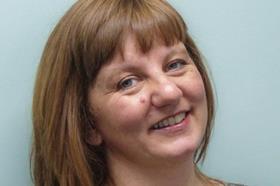View from the District Bench
Stress-related depression and anxiety recently forced me to take 11 months out from my job as a district judge. Whenever I speak about how emotionally broken I was, about how I regularly wept in my car on my way to court, how I felt utterly exhausted, depleted and useless, I am told that I am ‘brave’ to be so open.

Just after my return I blacked out in the street, fell and fractured my elbow. I was off work for another two months. Not a single person has ever told me I am ‘brave’ for speaking about the pain of being physically broken.
A consequence of writing about my illness is that I have been contacted by practitioners from all over the country who have also been ill. In their emails they sidle up to the subject by saying such things as ‘I recognise your experience’, ‘You are braver than I’, or ‘I had similar experiences’.
Even in my courtroom I hear advocates talk about clients as having a ‘mental health issue’ rather than naming the illness they are experiencing. My own colleagues still talk about me as having ‘been off sick with stress’ when stress is not an illness but a natural reaction to pressure. It is unalleviated excess exposure to stress that causes first disorders like burnout and then physical or emotional or mental illness.
The positive phrases ‘workplace wellness’ or ‘wellbeing at work’ are now commonplace. And it is absolutely right that we place emphasis on ‘pre-hab’ as well as ‘re-hab’. It is good to prevent ill health and bolster resilience. But it is equally vital that we create a culture in which we recognise the negative experiences caused by stress. It should not be viewed as ‘brave’ to describe yourself using words such as ‘burned-out’ ‘depressed’, or ‘suicidal’. It is time we did not use the verbs ‘admit’, ‘reveal’ or ‘confess’ when talking about a difficult emotional experience or a full-blown mental illness.
As lawyers we are used to being precise and correct with our vocabulary. So why do we still speak in hushed euphemisms when it comes to mental ill-health?
The answer is fear. For those who are ill, there is a fear of being stigmatised. Of being seen as unstable, unreliable, a liability. We can dread being labelled as ‘crazy’. We are afraid that people will assume that we will never be able to be trusted with our jobs.
And then there is the fact that one of the symptoms of depression is shame. When you already feel that you are useless, when you already want to crawl into a hole and hide, using terms that others shrink from is not an obvious choice. Having others use language which minimises your experience makes it easier to ignore your own symptoms and all the harder to seek help.
For those who are not ill, perhaps there is a subconscious fear that naming the phenomenon as illness makes it too real, too random, too everyday. A fear that it could happen to them. Talking about ‘stress’ makes it an external phenomenon, an adversary that can be kept at bay. Talking about ‘illness’ makes it an internal, potentially life-changing danger. Stress can be managed. Illness is suffered.
And yet, speaking about mental illness, naming it, bringing it into the open can be the most positive action to take as a sufferer. Brené Brown, who has done much research into shame and vulnerability, says: ‘Shame hates it when we reach out and tell our story. It hates having words wrapped around it – it can’t survive being shared. Shame loves secrecy. When we bury our story, the shame metastasizes.’
Speaking up was not for me the result of healing, it was one of the mechanisms to healing. Honesty was what got me the support I needed. Shedding light on my experience takes the power away from the darkness. I struggle owning the word ‘brave’ but I fully accept the fact that making myself vulnerable was the way to regain strength.
Part of creating, preserving and returning people to workplace wellness must be to use language accurately. We need to create a psychologically safe space where it is acceptable for colleagues to feel able to describe emotions accurately and to name their illnesses without fear of stigmatisation. After all, we cannot slay a dragon we are intent on ignoring.
Helen L. Conway is a district judge at Liverpool County Court
































2 Readers' comments